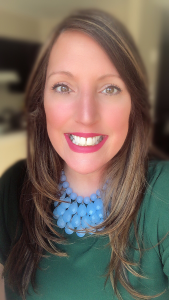Before there was a name, and before there was an idea, there was a question, born out of a desire to help: how can we make an impact on the mental health and opioid crisis, in the face of a massive shortage of addiction specialists and psychiatrists?
Kelly Gregoire, Vice President of Operations at TryCycle Data Systems Inc. in Ottawa, says, “When you look at an enormous health issue like mental illness and addiction, the problem is so big. Our goal was never to tackle healthcare systems themselves. The vision was always about increasing connections to care and saving lives.
Bridging the gap
Kelly credits John MacBeth, Co-Founder and CEO, with the idea for the digital tether tool that exists today. The seeds for this idea were planted in 2012 when John spent several months visiting a First Nations community in Saskatchewan to better understand the healthcare gaps in remote areas, where access to care was limited by nursing capacity. Then in 2017, when John was a Master’s student in Connecticut, he observed the opioid epidemic which was devastating communities, crowding emergency rooms, and impacting thousands of lives each day.
Kelly says, “We started to recognize that people were slipping through the cracks in the spaces between appointments. We asked, how can we bridge those gaps? How can we increase levels of care and connection without adding more resources? How can we be part of the solution?
Their answer was TryCycle, a person-powered technology system that uses a smartphone application, tethered to at least one compassionate health professional. The app creates a digital connection between clients and their clinical team, extending the reach of these resources and acting as a companion tool to treatment. This enhanced care model allows TryCycle-enabled individuals a safe space to share health behaviours, symptoms, and overall wellbeing.
Tech for good
What sets TryCycle apart, Kelly says, is that this isn’t a do-it-yourself solution. While other apps have mood monitoring, wellness tracking, and journal functions, the TryCycle app must have a trained health care provider on the other end, looking for trends proactively and able to intervene when needed. It helps clinicians target at-risk individuals and provides an easy way to assess and adjust support based on measurable progress.
Signup takes minutes and is initiated by a health care professional who has an existing and trusted relationship with their client. “Once they’re using the app, outreach can be initiated by one clinician or a whole health care team, including their therapist, nurse, and trained peer supports,” Kelly explains. “Together, coordinated care teams can provide personalized interventions to each individual, whether that is interrupting negative behaviour as it occurs, or reinforcing positive actions and creating an important sense of connection.”
Listening comes first
The relationships built by John and TryCycle in Saskatchewan over the last decade have led to a partnership with the Federation of Sovereign Indigenous Nations and Indigenous Services Canada. About 75 people in First Nations communities are using the app, and we have more communities coming on board each month. For individuals who use this tool, TryCycle is helping them connect to Indigenous health resources in the community, establishing trust, reducing shame, and stimulating conversations that link people to services for their depression, trauma, PTSD, or substance use.
“We collaborated with First Nations nurses, counsellors, and therapists on the design of our technology as well as the words used within the app itself. Everything was translated into Cree for this audience, and we plan to add more Indigenous language options in the coming months” says Kelly. “It was important for us to listen to First Nations nurses and frontline healthcare workers in the communities. We had to have an open mind to understand barriers to using our technology. What has worked for TryCycle in urban clinics and hospital settings, was not necessarily going to work in rural and remote locations. We learned a lot and adapted our technology to meet the needs of First Nations people.
The private sector is also reacting, says Kelly. “On the clinical side, we’ve recently partnered with Roche Canada to develop a culture-based version of our app for diabetes management. And from the insurance sector, both RGA Canada and Saskatchewan Blue Cross have invested in our vision to expand peer supports and language options for Indigenous people across the country.”
Home-grown talent
While the idea was born in Connecticut, the company was built in Ottawa. TryCycle’s operations and development are in the nation’s capital, and it continues to create jobs across the province.
“We’re on the tip of substantial growth,” says Kelly. “Our plan is to hire 25 people in the next 18 months. We’re bringing on new talent to help with product development, customer support, and expanding our data capabilities.”
Kelly draws support from her network in Ottawa, including women-led organizations and founders. She also has accessed resources through Invest Ottawa.
“We’ve had their support since the beginning, through the IO accelerator program,” she says. “Having access to a network of advisors has been invaluable. We’ve worked with marketing, sales, legal, and human resource experts who provide no-nonsense, tactical advice. These relationships have helped to shape many of our leadership strategies and business approaches.”
“I also participate in Invest Ottawa’s peer groups, have access to conferences and training, and have made connections that have been helpful in our fundraising efforts. I have a wonderful network I can reach out to, and they too can reach out to me.”
What’s next for TryCycle
Although the technology was originally designed around substance use, TryCycle can be used in any scenario where there is a chronic or behavioral health disorder and can even help to address top public health crises and infectious diseases like HIV, Tuberculosis, and COVID-19.
“We will continue to focus on making an impact in underserved communities and vulnerable populations. In parallel, we are expanding our product pipeline to address growing health issues like eating disorders, heart disease, and comorbidities,” says Kelly. “We’ve grown the technology along with the vision. We want to reduce barriers like language, accessibility, and stigma, and that’s what this tool can do.”
Contact TryCycle:
Website: https://trycycledata.com/
Twitter: https://twitter.com/TryCycleData
LinkedIn: https://www.linkedin.com/company/trycycle-data-inc
Invest Ottawa has a holistic tech portfolio, meaning our services and programs help businesses by shortening their growth path. To learn more about how we do this, visit Venture Path Programs | Invest Ottawa.







